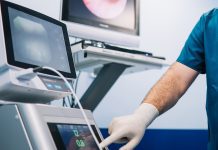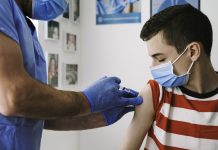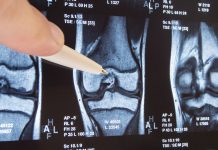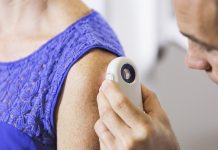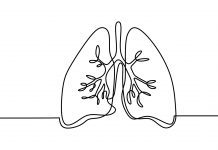Genetic analysis could answer vital questions about Legionella bacteria
Routine water sampling and genomic sequencing of Legionella bacteria could identify the source of Legionnaires’ disease outbreaks.
Legionnaires’ disease is a lung infection you can...
A new way to stop postoperative bleeding after heart surgery
Researchers from Instituto Gulbenkian de Ciência (IGC) have presented a new approach to reducing postoperative bleeding after heart surgery.
Postoperative bleeding is one of the...
Therapeutic games can improve working memory in older adults
A new study by the University of Birmingham has discovered that older adults could improve working memory by playing online therapeutic games.
Working memory is...
Dementia diagnosis is more likely in people taking multiple medications
A dementia diagnosis is more likely in people who are taking three or more medications, according to an international research team.
The study is the...
NHS to deliver world-first national genetic screening service for children
The NHS will introduce a groundbreaking genetic screening service hailed as the start of a “new era of genomic medicine”.
At the first-ever NHS genomics...
Navigating medical cannabis in Europe
Lorna Rothery spoke to Rainer Krüger from the recently formed European Cannabis Association about how the organisation is supporting the development of a stable...
Colorectal cancer screening methods may need rethinking
A study into colorectal cancer screening methods has suggested that colonoscopies may not be as effective as previously thought.
It has previously been assumed by...
Enzyme therapy shows promise for infantile Batten disease
A new study finds potential treatment for infantile Batten disease, a condition that causes dementia and early death in children.
Infantile Batten disease, also known...
Screening programmes for childhood hearing loss need improvement
A new thesis from Karolinska Institutet reports that screening programmes for childhood hearing loss need urgent improvement.
According to the World Health Organization, around 34...
Older bone fracture patients are likely to have poorer general health
According to research from the Garvan Institute of Medical Research, older people who suffer a bone fracture are more likely to experience worse general...
Record number of mental health support provided to young people
Harrowing new figures show a record number of young people are seeking mental health support from NHS services.
As young people return to college or...
NICE and MHRA awarded £1.8m to explore digital mental health tools
NICE and the MHRA have been awarded £1.8m in funding by Wellcome over three years to explore and create guidance on regulating digital mental...
The teenage meningitis vaccine delivers herd immunity to all ages
Researchers from the University of Oxford have found that the UK’s MenACWY meningitis vaccine programme generates herd protection protecting all age groups.
In the new...
Neurostimulation shows promise as a dysphagia treatment
A new study by the University of Manchester has found three types of neurostimulation that could help people with dysphagia.
Dysphagia is the medical term...
Harnessing generative design for knee implants
An advanced design technique, used in aerospace and automotive industries, could revolutionise personalised medical devices, such as knee implants.
Researchers at the University of Birmingham,...
Can virtual reality help treat depression in young people?
In a new clinical trial, researchers from the Open University of Catalonia are investigating the efficacy of virtual reality as a treatment for depression...
Artificial Intelligence could be used to improve skin cancer treatment
Researchers from the University of Helsinki have developed an Artificial Intelligence (AI) model that could be used to improve skin cancer treatment.
The researchers have...
Over 100,000 patients treated by their local pharmacy
New NHS data shows that thousands of people are now being seen by their local pharmacy, alleviating pressure on GP practices.
In June, 118,123 people...
New cancer treatments made possible by genome research
Researchers from the University of Bern have outlined new cancer treatments against non-small cell lung cancer by analysing the ‘dark matter’ of the human...
Researchers use 3D bioprinting to develop a diabetes treatment
Queen’s University Belfast researchers have designed a new bandage treatment using 3D bioprinting, which could revolutionise diabetes treatment.
Diabetes is a lifelong condition that causes...







